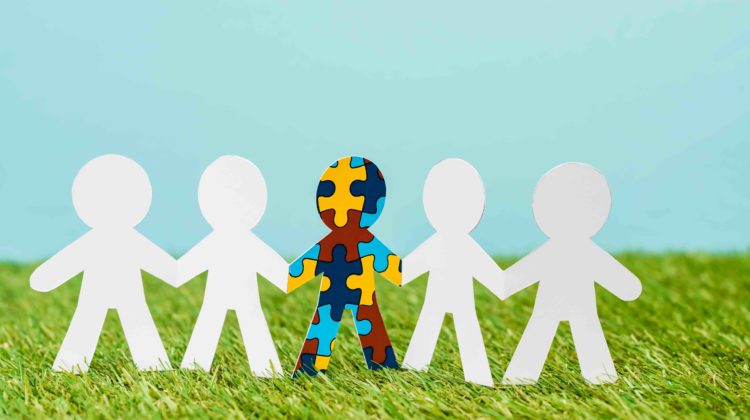
Cannabis has gained recognition for many things. People use it to treat symptoms related to all types of conditions. Today, many doctors across the country recommend the plant to their patients. Autism Spectrum Disorder affects over 700 million people across the globe, according to Therapeutic Pathways, and is often left off the list of disorders cannabis can provide relief from.
Cannabis is typically thought of as a healthier alternative to pills for many disorders, and according to several studies, autism may be one of them. Anecdotally, some autistic individuals1 have advocated for the use of cannabis over traditional medicinal treatments like antipsychotic or anticonvulsant pills. Several states are beginning to acknowledge the benefits that cannabis provides to some autistic patients, with 14 states legalizing the use of medical cannabis for those on the autism spectrum.
1The Autistic Self-Advocacy Network supports this term over ‘person with autism’.
Does Cannabis Treatment Actually Work?
The proven benefits of cannabis for autism symptoms, such as difficulty with social interaction and restrictive behaviors, are various. According to a study published by Seminars in Pediatric Neurology in 2020, cannabis “holds promise” in treating symptoms such as aggression, self-injurious behaviors, and epilepsy.
Cannabis and Cannabinoid Use in Autism Spectrum Disorder, a study conducted by psychologists at the Universidade Federal da Paraíba in Brazil, provides even more evidence supporting the use of cannabis as a treatment for symptoms related to autism. Researchers found that subjects who used cannabinoids to treat autism experienced improvements in cognition, sensory sensitivity, attention, and social interaction. They also saw a reduction in the intensity of symptoms like hyperactivity, anger attacks, sleep problems, anxiety, restlessness, irritability, and depression.
Although treatment often goes well, there are potential side effects related to cannabis use. These side effects, including manic and repetitive behaviors and anxiety, do not occur for every autistic person using cannabis – different patients will experience unique effects.
Quelching Animosity with Traces of THC
There has been push back against using cannabis as a medication, especially for children and individuals on the autism spectrum. The potential side effects of medicinal cannabis can also be scary for those who don’t know much about the plant. In order to find products that can help the greatest amount of people, scientists have manipulated the cannabinoids present in cannabis and experimented with different forms of intake.
Children with autism may experience tremendous positive effects from cannabis, similar to adults. Although granting children access to a substance such as cannabis can be unsettling for some, research studies have shown that cannabis oil may be beneficial for children. The oil, which is applied to the skin, contains lower doses of THC, the psychoactive cannabinoid present in the plant.
The presence of less THC may be extremely helpful for all autistic people, adults and children alike. According to a 2021 study from the Journal of Cannabis Research, lower doses of CBD and only trace amounts of THC seem to provide the best results; a 20:1 ratio between CBD and THC was shown to have the best effects on managing the behavioral problems and core symptoms related to autism spectrum disorder. The same study found cognitive improvements in children who took low-grade CBD for over two years, showing the importance of a CBD majority in autism treatment.
Microdosing
Unfortunately, many people only have access to cannabis with high levels of THC. One solution to this problem is micro-dosing. Microdosing is the act of taking small amounts of cannabis in order to avoid its psychoactive effects. Doing this may dissipate any negative side effects and provide more positive outcomes.
The Need for More Research
There are many studies supporting a positive link between cannabis and autism. But more results are needed before hard conclusions can be drawn. Some studies have produced inconclusive results, demonstrating the importance of further research. Other studies have used inconsistent potencies of cannabinoids in their trials. That is, the strength of the THC, CBD, and other components found in cannabis differs between experiments. Varying potencies may throw off the controls of an experiment, making it harder to draw accurate conclusions.
More research is needed to solidify prior studies that look at the use of cannabis in autism treatment. Autism is a complex condition that can trigger a multitude of symptoms for people. For treating unwanted symptoms related to autism, cannabis is a promising solution.



WHOLE PLANT “salad bar” and NOT one thing perhaps: cannabis/hemp/mushrooms 🙂
Please use literally any other image except ones involving the puzzle pieces 😮💨. That symbolism was attached to autism by the non-profit Autism Speaks who is openly pro-eugenics and treats us like a problem, not as individuals. The autistic community has spoken out against this symbolism over and over. Thought I would let you know before you offend other stoner autistics
Great work on Autism with polycultures/”salad bars”: medicinal THC, THCA, THCV 🙂
https://www.youtube.com/watch?v=xtRYQo50lFY&t=157s
Please ask Daniel how he treats his autism with polycultures of THC, THCA, THCV 🙂
https://www.youtube.com/watch?v=xtRYQo50lFY&list=PLT0xq1HhU8wNN7qskbgyzue9GjwbjDXiw&index=22